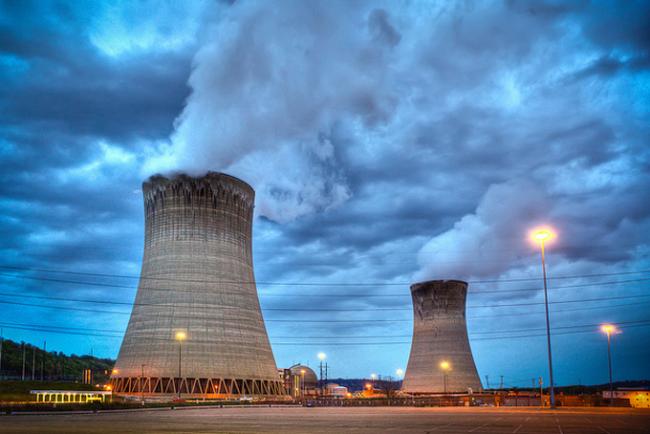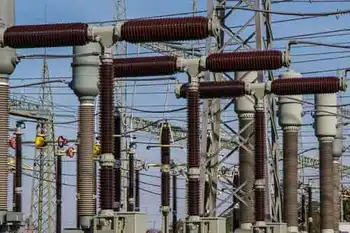Merits of public vs. private utilities debated
YANKTON, SOUTH DAKOTA - NorthWestern Corp. of Sioux Falls has come out of bankruptcy with healthy stock prices, but some South Dakota cities and power companies have stated an interest in buying NorthWestern Energy's assets and making a public power utility.
NorthWestern's stock was trading at more than $28 a share recently.
In remarks to the Yankton Rotary Club, the company's chief financial officer, Brian Bird, said he's sure NorthWestern management has no interest in selling.
"I would just say that, from my perspective, there were some folks that thought we wouldn't trade as well coming out of bankruptcy," he said. "Obviously, I'm sure they're disappointed with where our share price is. Our job is not to worry about that. Our job is to continue to worry about the business and make it as profitable as we can for our existing shareholders."
Last year, the South Dakota Public Power Authority was formed to look into buying NorthWestern's assets after it emerged from bankruptcy.
Bird said the process of forming a public power utility would be too expensive and lengthy. Plus, he said, millions of tax dollars would be lost and public support and operating expertise would be lacking.
Yankton Mayor Curt Bernard, chairman of the South Dakota Public Power Authority, said he's neither for nor against a public power agency. But he took issue with some of NorthWestern's stands.
Bernard said the expertise in operating a public power entity would be handled by hiring NorthWestern's employees.
"The experts are in the employee base," he said. "And, frankly, cities run water treatment plants and sewer treatment plants. This is not rocket science. It's been done. With the asset of having an excellent group of employees in existence at NorthWestern, it's entirely possible."
He said some cities contributed money about a year ago to investigate buying NorthWestern assets. "That was a defense against the potential of bankruptcy failure. It was an insurance policy. Fortunately, we haven't had to exercise that.
"It's like shopping local: If you own your own electrical plant, the 8-15 percent return on your investment stays locally. Any growth you do stays locally, as well. It doesn't get shipped out elsewhere."
Linda Wittrock, NorthWestern's director of community relations and economic development, said shareholders bear all the risk in a private utility, while the customers shoulder the risk in a public power arrangement.
"Additionally, privately owned utilities have an independent authority voted in by the customers (the Public Utilities Commission) which overlooks the rates. With public power, they can raise the rates whenever they want and the customers have no say."
NorthWestern will do what its investors tell the firm to do, Wittrock said.
"We've increased the capital budget and turned it around fast. We told our employees we're going to come back strong, and we're doing that. The best way to build our strength is true performance. A lot of customers lost trust in us because of what we've been through. We understand that."
Related News

First Reactor Installed at the UK’s Latest Nuclear Power Station
LONDON - The United Kingdom has made a significant stride toward securing its energy future with the installation of the first reactor at its newest nuclear power station. This development marks an important milestone in the nation’s efforts to combat climate change, reduce carbon emissions, and ensure a stable and sustainable energy supply. As the world moves towards greener alternatives to fossil fuels, nuclear power remains a key part of the UK's low-carbon energy strategy.
The new power station, located at Hinkley Point C in Somerset, is set to be one of the most advanced nuclear facilities in the country.…




